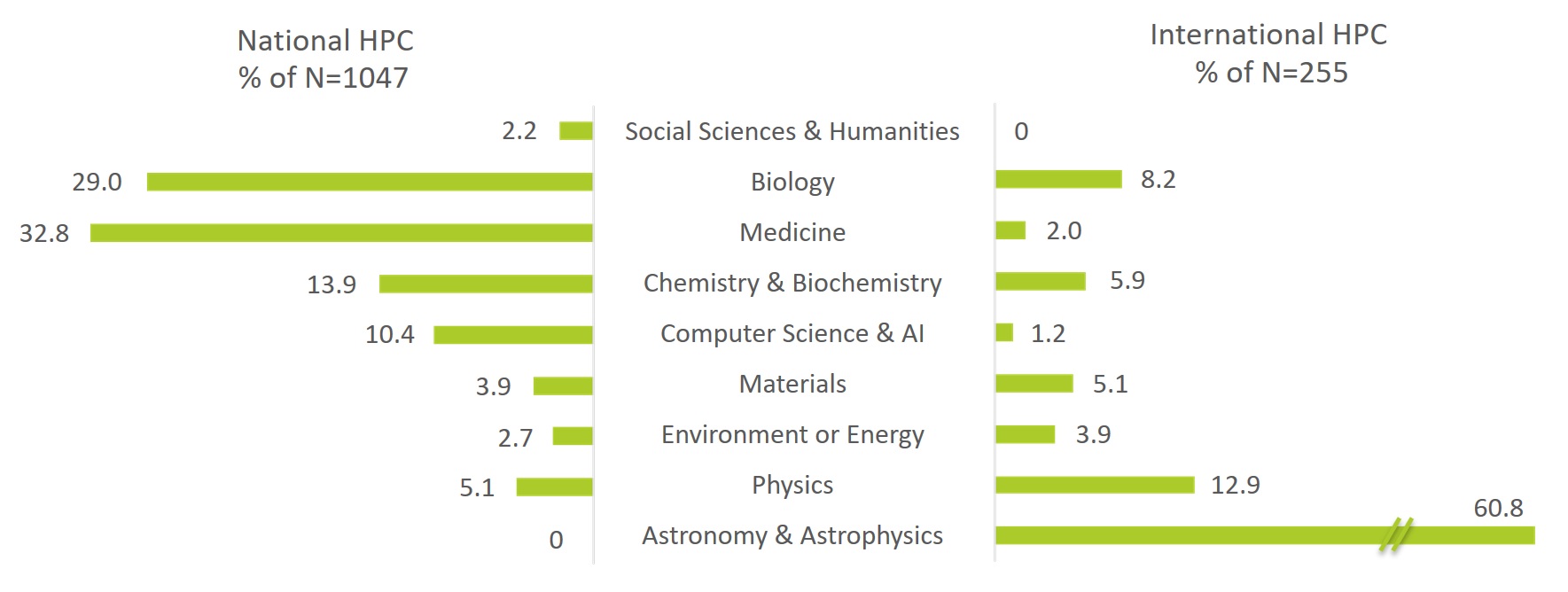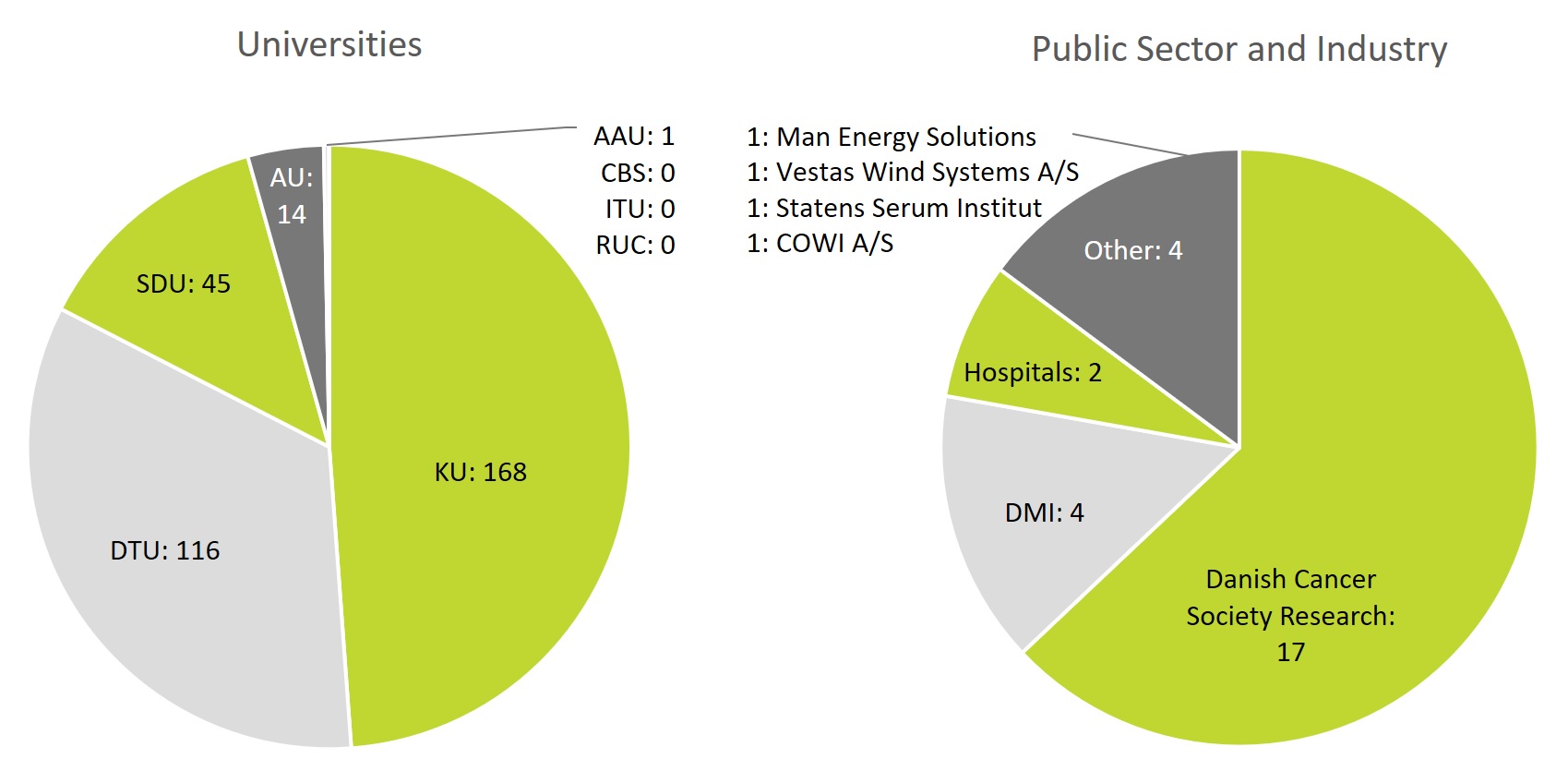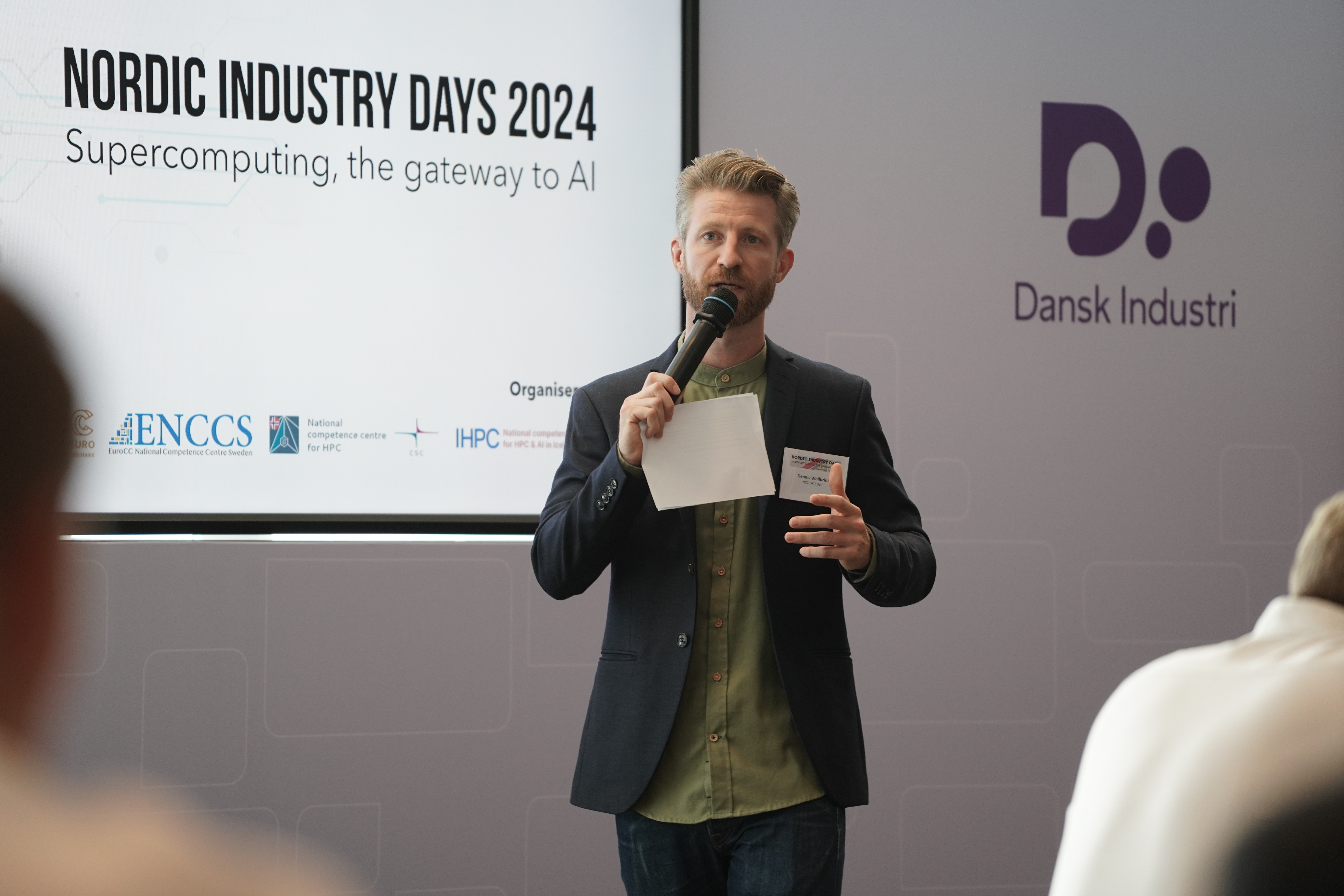
DeiC continuously monitors who uses the national and international HPC resources. Our list of publications, where supercomputer resources have been used in the research, has now been updated again. This time, the research results from the international PRACE supercomputers have been added, so that the list also includes publications, where international Tier-0 or Tier-1 supercomputers have been used via the Danish membership in PRACE.
Denmark has been awarded more than 1000 million CPU hours via the European PRACE collaboration on large HPC resources within the last 10 years. PRACE is an abbreviation for "Partnership for Advanced Computing in Europe".
A total of 1302 publications have been collected, where national or international supercomputers were used in the research. You can explore the material online here.
Great diversity in the PRACE projects
DeiC's online list contains publications with research results in which either national HPC resources have been used in the period from 2015 to 2019 or HPC resources via the Danish PRACE membership from 2011 to 2021.
A total of 255 publications on the list refer to the use of HPC resources through PRACE, of which 26 have used Tier-0 HPC facilities, meaning European resources, 21 have used Tier-1 facilities, which are national resources in various European countries via the PRACE collaboration, and 34 publications refer to implementation projects (see Figure 1).
The majority of the publications are anchored in an international Planck project within astronomy and astrophysics (n = 106), and approximately 25 percent of the publications did not indicate the assigned project type. There are 25 out of a total of 1302 publications that refer to the use of both national HPC resources and PRACE resources in the same study.

Figure 1. Distribution of number of publications that included using international HPC (PRACE, 2011-2021) with nomination of project call types. Abbreviations: DECI, Distributed European Computing Initiative (Tier-1), SMEs, Small and medium-sized enterprises; IP, Implementation projects. More than one grant type can be used in the same publication.
Great difference in how much each scientific field apply for resources
Astronomy, astrophysics and physics are represented in more than 70 percent of the publications referring to the use of HPC resources via PRACE (see Figure 2). The "Life Science" areas, which are biology, medicine, chemistry and biochemistry, make up approximately 16 percent of the publications referring to PRACE, whereas more than 80 percent of national HPC use is within this area.
The areas of environment, including meteorology, energy and materials science, are represented in publications using both national and international HPC resources, and a higher percentage refer to the use of PRACE facilities (3.9% environment or energy; 5,1% materials) compared to national HPC facilities (2.7% environment or energy; 3.9% materials).
Social science and humanities are not yet represented through the international HPC collaboration in PRACE, but 23 publications are listed from this area, which have used national HPC in Denmark.
Based on the list of Danish publications that have used HPC resources, it is indicated that researchers from certain disciplines are looking for larger HPC facilities than what can be offered in Denmark (see Figure 2).

Figure 2. Distribution (%) of scientific fields in publications that included the use of national and international HPC resources. International HPC resources is in this case PRACE (2011-2021), and national HPC resources used in the period from 2015 to 2019.
KU and DTU use PRACE the most
In total, researchers from 5 different universities in Denmark have used HPC resources via PRACE, which has been found from an analysis of the authorship of the 255 publications that have used PRACE (see Figure 3). University of Copenhagen and the Technical University of Denmark are represented in most publications with authorships of 168 and 116 publications respectively, of which 106 are from a large international astrophysics project with participation from both KU and DTU (see Figure 4A, Planck project 2013-2018).

Figure 3. Distribution (count) of publications with Danish participation that used PRACE resources, assigned to universities, industry and public sector (N=255).
This is followed by the University of Southern Denmark with authorship of 45 publications, Aarhus University with 14, and Aalborg University with 1 publication, where reference is made to PRACE resources.
Distribution of scientific fields of the publications per university without the Planck project is shown in Figure 4B.
A number of publications were from the Danish Meteorological Institute and the Danish Cancer Society without the participation of Danish universities (see Figure 4B, NoDKUni).
A total of 27 publications included participation from industry or public sector (see Figure 3), corresponding to approximately 10 percent of the publications that have used PRACE resources. However, none of these publications refers to the SHAPE program in PRACE, which is specifically dedicated to small and medium-sized enterprises (see Figure 1).

Figure 4. A. Number of publications from the PRACE Planck project within astronomy and astrophysics from 2013 to 2018 (N=106). B. Number of publications referring to PRACE that was assigned to additional projects within 8 different scientific fields (N=149). CBS, ITU and RUC have not yet used HPC resources through PRACE.
Allocation of HPC resources from PRACE call number 23 will be announced at the end of September on the PRACE website. PRACE call number 24 has just opened, and this time there is a special track dedicated to the industry. The deadline for applications for computational resources is November 2nd, 2021. Read more about it here.




